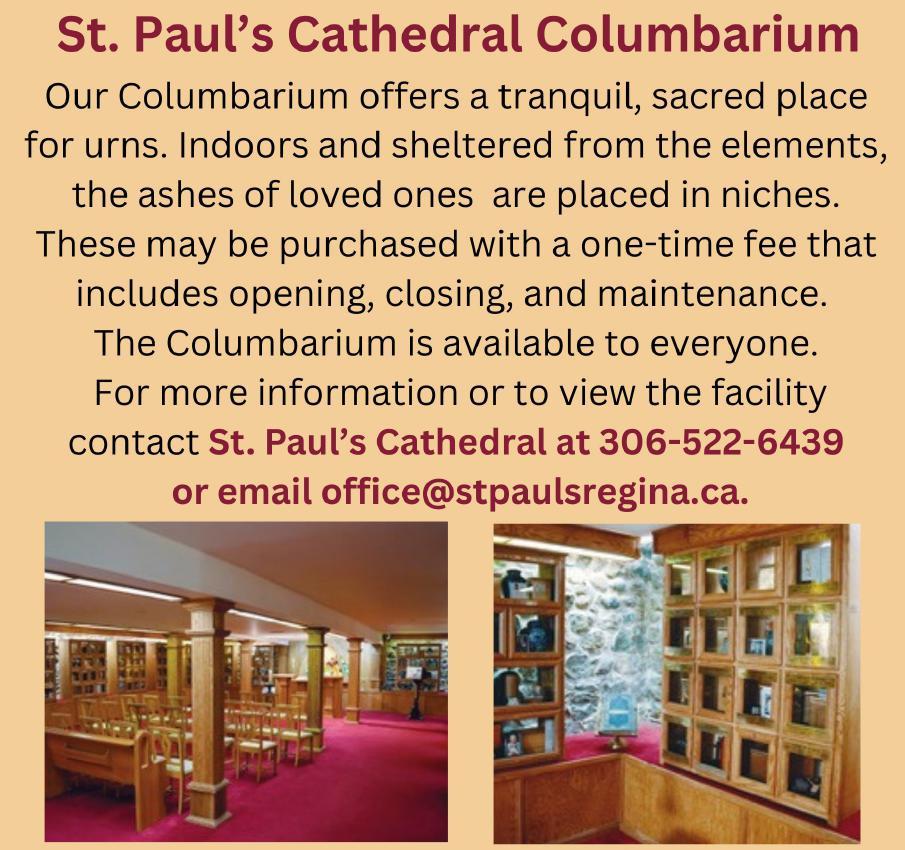
3 minute read
Working together in response to God's call
By the Rev. Dr. Iain Luke Principal, College of Emmanuel & St. Chad
We just observed the 2023 Week of Prayer for Christian Unity, and I wonder how much impression (if any) it made on readers of this column, and the churches where you worship.
Advertisement
Did you pray for the unity of churches, for the unity of your church, or for the unity of all God’s children?
All of these are good things for which to pray, but what I am really wondering is, what happens next. In January, Christians of many denominations around the world asked God to “help us embrace unity with each other.”
How do we imagine that prayer will be answered, or even better, how do we already see it coming true?
For many of our parishes and institutions, this is a vital question. Some are developing internal unity after merger or conflict.
Some are seeking, or strengthening, partnership with people of other Christian traditions.
Many have experienced the truth that our response to God’s call is one we can only truly answer beside our neighbours.
That truth, and the challenge that comes with it, is part of everyday life at the College of Emmanuel & St Chad.
As a college of the Saskatoon Theological Union, we share a building, we share worship, and we share our studies with the Lutheran Theological Seminary and St. Andrew’s College (United Church).
Each of those communities often includes students and teachers who represent other faith traditions, from within Canada and beyond.
Such sharing can be a cause for great joy, as we discover the common ground we hold.
It can also be a source of frustration, when we find points of difference we had not anticipated! In my experience, it takes a considerable investment of time and energy to live with difference like this, but the rewards are definitely worth it.

One of those rewards is simply working with a larger team.
While Jesus sent His disciples out two by two, they always had a bigger group to come home to, not just the Twelve, but the whole body of disciples. Each of them had their own background, take on what Jesus was teaching them, and way of living it out.
But they recognized their need for each other, both for building up a bigger picture, and for the sheer practical necessity of mutual support.
Another reward is the respect that develops, over time, between people who understand and appreciate their differences.
On an personal level, I learn the most from people with whom I disagree. I also receive the greatest sense of welcome from the very same people, as we reach the point of recognizing that we belong together, doing God’s work.
The same outcomes can be seen in the way our three colleges work together. Our collaboration compels us to understand what makes our partners tick, so that we can respect what matters to them, as they do for us.
We are all the richer for it, and we welcome one another whenever we have the opportunity to work together. A key part of this process is that it does not lead to a muting of our distinctive identities, or the adoption of compromises that satisfy no one. Far from it.
Our faculty and student body have to think more, not less, about what makes us Anglican, so we can bring our best to the table, and ask our partners to respect what is core to our identity.
Likewise, our sense of a unique mission for our college is sharpened, by explaining ourselves to our partners, and asking for their support in what we do — as they also ask us. One of my hopes for the STU, as we grow closer together, is that we are learning to paint on a larger canvas.
As the people of God working together, we have a call that is bigger than any one of us, or any one college or denomination.
That call includes, and is shaped by, the experiences of each individual and each institution, and we can only discover its full breadth by learning respect and appreciation for what God is up to in our partners, as well as in ourselves.
My prayer for you, and your church, is that you will also find the people with whom God is calling you to work, and grow with them towards unity.
Those prayers are being answered, as each of us opens up space in our hearts, in our minds, in our buildings, on our committees, or wherever else we can learn to welcome and appreciate the gifts our neighbours bring to our shared mission.








